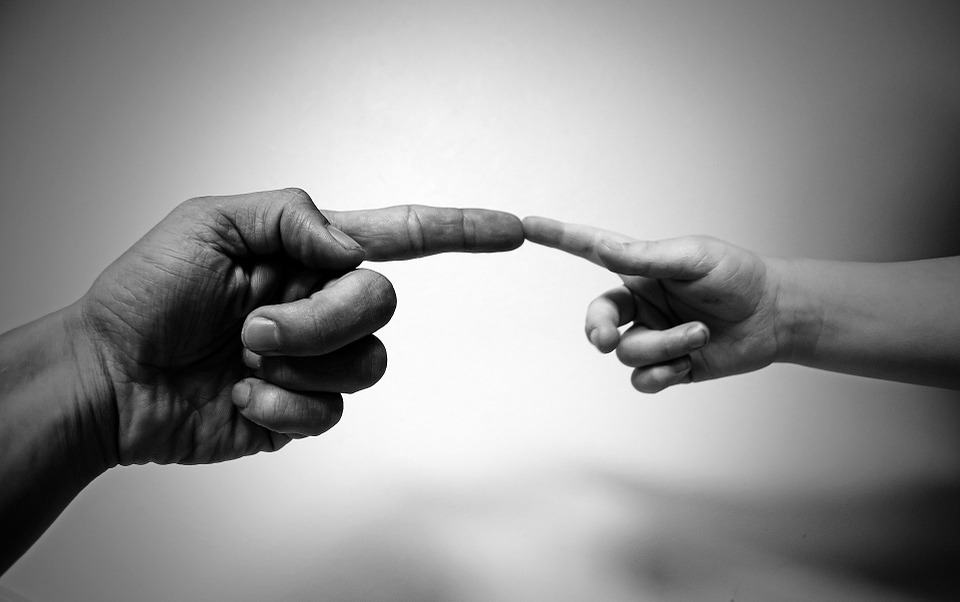Sex, drugs and religion
Interview with
According to new research from the University of Utah, finding God can feel a lot  like sex, drugs and rock and roll. And this is because all of these hedonistic pursuits activate the same reward pathways in the brain as a religious experience. Graihagh Jackson caught up Jeffrey Anderson, who made the discovery...
like sex, drugs and rock and roll. And this is because all of these hedonistic pursuits activate the same reward pathways in the brain as a religious experience. Graihagh Jackson caught up Jeffrey Anderson, who made the discovery...
Jeffrey - Billions of people find meaning and make important decisions based on religious and spiritual experience, yet we know so very little about how the brain interacts with these experiences. And we set out to study a specific type of spiritual experience termed "feeling the spirit" in a group of devout Mormons. Perhaps the most striking finding to us was activation of the nucleus accumbens, and area that's been termed the brain's reward centre. So romantic love, parental love, winning at gambling, cocaine and methamphetamines, all of these types of experiences strongly activate the same region.
Graihagh - Is that surprising though because people enjoy being religious?
Jeffrey - Well, absolutely! I would think that to a believer, of course this is going to activate brain reward circuits. They're rewarding experiences so that shouldn't be surprising to us, yet this is the first study that's actually associated those types of circuits with religious experiences.
Graihagh - Jeffrey came to this conclusion by popping nineteen Mormons into an MRI scanner and got them to do a range of tasks from listening to religious speeches and quotes to...
Jeffrey - ...to personal prayer to audio-visual stimuli produced by the church that were designed to evoke the types of spiritual feelings that we set out to study.
Graihagh - And then, he got them to press a button when they felt the spirit.
Jeffrey - It was surprising to us how well we were able to recreate those feelings in the scanner; it's kind of a private place.
Graihagh - Mmm, that is surprising. I know what you mean about an MRI being a private place but it's also hugely noisy as well from what I remember.
Jeffrey - Yes noisy, loud, artificial, and yet somehow very conducive to these types of feelings. Many of the participants that we studied were in tears at the conclusion of the scan and they reported that these were very strong feelings that were very similar to what they had in their own religious practice or worship services.
Graihagh - Interestingly, the reward pathway in the brain lit up three seconds before the Mormons pressed that button. Their breathing deepened as well and their heart rate quickened. But is this going to be true of all faiths, not just Mormons?
Jeffrey - Well, it's a compelling hypothesis. We don't know exactly how this will differ from individual to individual, or from faith tradition to faith tradition. But there's a strong argument that there's a shared library of brain responses to religious and spiritual experiences, both adaptive and maladaptive types of religious experience.
Graihagh - I asked that because your study I think was on nineteen individuals, so it it really a big enough study to then be able to say well, you know it might be like this - is that not a bit of big jump?
Jeffrey - When you make a jump to other faith traditions, you know that's going to require more studies. We need to study other groups but the tools are mature. Religious neuroscience has the capability to answer questions that have been around for millenia.
Graihagh - Like what?
Jeffrey - Like what is it that the brain is doing when we feel these profound spiritual experiences?
Graihagh - For me, the big question was this. Given that feeling the spirit lights up the reward section of the brain, could it then compete with things like sex, drugs, and rock and roll? Could this explain why lots of religions ban such pleasures so worshipers remain faithful?
Jeffrey - Maybe those things are competitors to the rewards that induced by religious experience. It's so pervasive that religions have rules about sex reward, other pleasure inducers. And, on the other side, many religious traditions actually use these types of experiences to reinforce religious conviction like peyote or the effects of music, which is known to activate the same brain regions, social rewards and reinforcement.
Graihagh - What can we learn from this? It's interesting - sure. But could we use religion or even music to treat addicts, retrain those neural networks to get a high from something else that's less damaging?
Jeffrey - That's a really interesting idea. We know that people who are addicted to drugs and alcohol, many of the treatment strategies have used religion. And there may not be too far of a stretch to imagine why if it's a lot of the same circuitry that's involved. We don't typically talk about addiction in terms of religious experience or in terms of romantic love, but a lot of the same physiology is involved. There's withdrawals, there's dependency, there's powerful motivation of behaviour and a lot of it has to do with whether something is adaptive or maladaptive in your life.










Comments
Add a comment